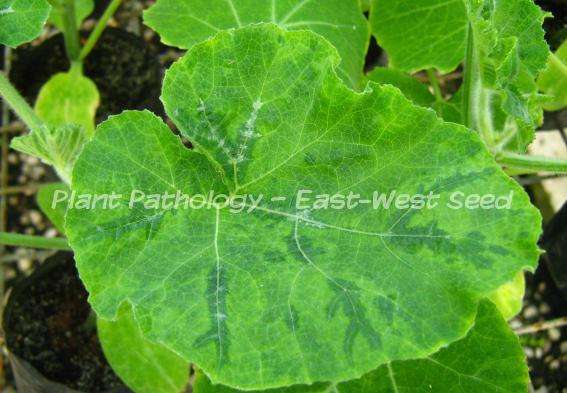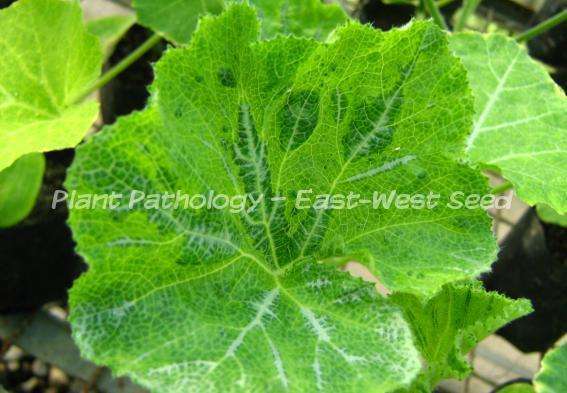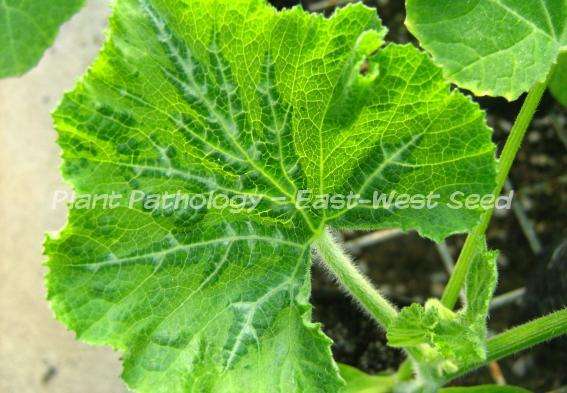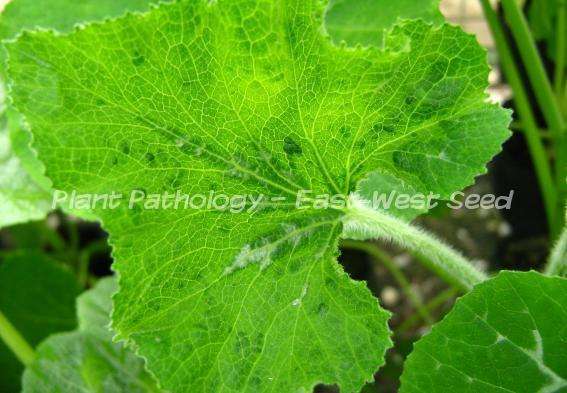Causal Agent:
Potyvirus (Papaya ringspot virus type W or PRSV-W)
| Characteristic Symptoms: | |
 |
Leaves of affected plants show yellow mosaic, blisters and distinct vein banding (lighter color between veins with tissues adjacent to veins remaining green or vice versa). |
 |
In severe cases, leaf narrowing and distortion may be observed. |
| Transmission and Spread: | |
 |
The virus is efficiently spread in a non-persistent manner by more than 20 aphid species, including Myzus persicae. |
 |
The virus is also easily transmitted mechanically through contaminated tools/implements. |
 |
There is no evidence of seed transmission. |
 |
The virus easily survives in wild cucurbits and in cultivated cucurbit crops grown year-round. |
| Management and Control: | |
 |
Use resistant varieties, if available.
|
 |
Use virus-free seedlings.
|
 |
Remove infected plants as early as virus symptoms are observed to prevent/minimize spread of the virus by aphids. |
 |
Remove weeds that serve as alternate hosts/virus reservoirs.
|
 |
Disinfect tools, farm implements with chlorine solution before moving from diseased areas to healthy areas.
|
 |
Control/minimize aphid population by using plastic mulch, yellow sticky traps and/or use of insecticides such as azadirachtin (neem), cartap hydrochloride (e.g. PadanⓇ, Barena 50 SP, Gemtrak®), acetamiprid (e.g. MospilanⓇ), acephate (e.g. AcetamⓇ, CompeteⓇ), chlorphenapyr (e.g. Kotetsu) or penthoate (e.g. PennantⓇ, VidexⓇ).
. |
| References: | |
| Compendium of Cucurbit Diseases (1996) by the American Phytopathological Society | |
To view other diseases, click here.
Need more help? Ask the Doctor.












